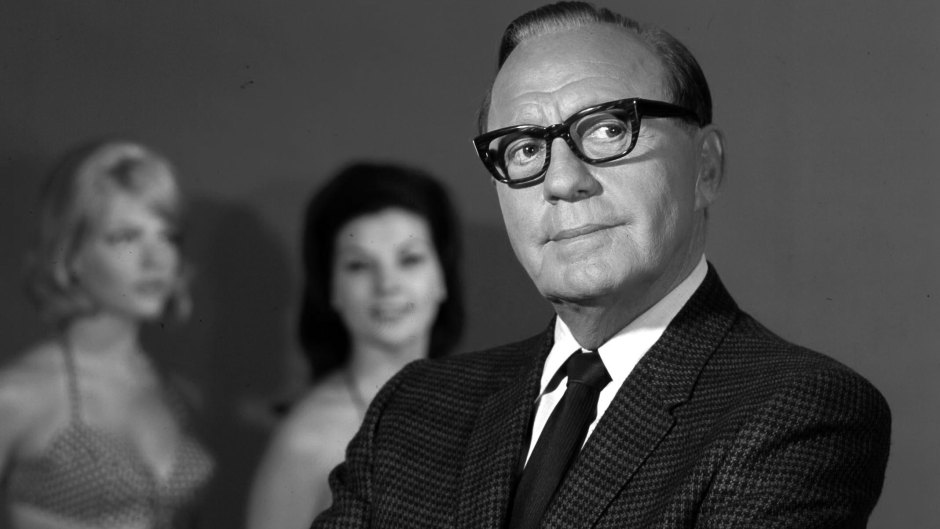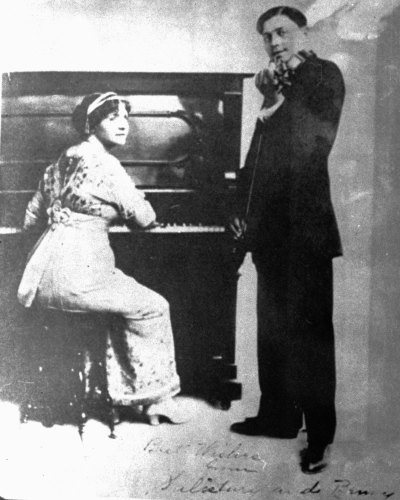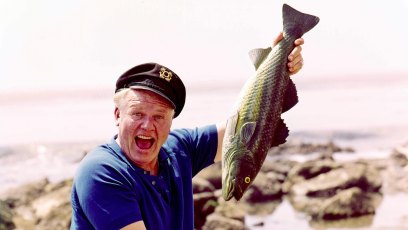
Kobal/Shutterstock
Jack Benny’s Daughter Remembers the Comic Legend’s Life, His Friendship with George Burns and Much More
One of the casualties of the passage of time is the loss of great entertainers. And not necessarily because of death — an obvious inevitability — but just because of changing times, tastes and a lack of cultural connection from one generation to the next. There are countless examples of entertainers who spent decades on the top, but who, unfortunately, are little more than a footnote in history and completely unrecognizable to the youth of today. One of them was Jack Benny, the king of all media long before shock jock Howard Stern thought he had coined the phrase.
He was born Benjamin Kubelsky on February 14, 1894, in Chicago, Illinois, beginning his career on the stage as a violinist and made the transition to comedy during his years as a part of vaudeville — the grouping of separate, unrelated acts on the same bill that was enormously popular in America and Canada from the early 1880s until the early 1930s. His star rapidly rising, he left the stage in 1917 to join the United States Navy during World War I, where he managed to entertain soldiers with his violin. Afterward, he changed his name to Jack Benny and continued performing.

By the late 1920s, a lot was happening. He had met, performed with and married Sadie Marks, who would take the stage (and then legal) name Mary Livingstone, and married her in 1927. Two years later, Jack signed a five-year deal with MGM for films, but, more importantly, he got his own radio show — The Jack Benny Program — in 1932, where he created the idea of a sitcom within a sitcom portraying to great comic effect a miserly, sometimes cantankerous and self-serving version of himself. He also surrounded himself with a great ensemble, including Eddie Anderson as Rochester Van Jones, Jack’s valet and chauffeur; Don Wilson as the show’s announcer; Gene McNulty as singer Dennis Day (they found a way to work a song into most episodes), Mary Livingstone as Jack’s girlfriend, Phil Harris as himself, a bandleader with an eye out for the ladies; and Mel Blanc (the voice of the Looney Tunes characters for decades) in a variety of roles, including the sound of Jack’s car, a Maxwell.
What’s truly impressive is that the radio show ran from 1932 to 1955, alternating between NBC and CBS stations; while also making the leap to television where it was just as big a success, airing from 1950 to 1965 (with five years of overlap in the two mediums).

All of which is to provide some background on Jack that many people might not be aware of. Between all of this, in 1934, Jack and Mary adopted their daughter, Joan. There’s a lovely passage in Jack and Joan’s joint biography Sunday Nights at Seven: The Jack Benny Story that beautifully captures life between father and daughter. “Mary and I decided to adopt a daughter,” wrote Jack. “Joanie was about two weeks old the first time I saw her. She was long and skinny and wrinkled all over her face and tiny arms. Her little legs looked crooked and were wrinkled all over, too, and her eyes were very blue. She was bawling so loud and she looked very mad … I couldn’t believe my eyes. ‘Is this the one you picked?’ I asked Mary. Mary was smiling a secret smile. ‘Yes,’ she said. ‘Isn’t she darling?’ ‘How can you want to adopt a funny-looking thing like that one?’ ‘I can’t help it,’ Mary said. I just love her.’ She became very beautiful and I fell in love with my daughter before she was living with us even two days. She completed our lives.”
He went on to explain that over the next few years Mary was the disciplinarian while he was the “softie,” and that there was a point when Joan was seven that she proclaimed that she hated her mother. Jack decided to have a talk with her.
“I told her about how when I first saw her I thought she was so ugly and how it was Mary who had wanted her so and how much Mary loved her and that these rules she hated were for her own good and necessary for her own happiness. Not long after I had this little heart-to-heart talk with Joanie, one morning she said suddenly out of a clear sky, ‘Daddy, I love you very much.’ I said, ‘Joanie, you don’t love me as much as I love you.’ And then — mind you she wasn’t more than seven or eight — she, remembering our little talk, answered, ‘Yes I do. I love you more because I loved you all my life and you didn’t love me until the second day.’”
What follows is our exclusive interview with Joan Benny as she shares her memories of the man who spent decades telling people he was only 39-years-old.
Please scroll down for our conversation with Joan Benny.

AP/Shutterstock

RetroVision Archive

Courtesy Joan Benny

Kobal/Shutterstock

Kobal/Shutterstock

Snap/Shutterstock

RetroVision Archive

AP/Shutterstock

RetroVision Archive

Edwin Sampson/ANL/Shutterstock

Paramount/Kobal/Shutterstock

United Artists/Kobal/Shutterstock

Snap/Shutterstock

Kobal/Shutterstock

Everett/Shutterstock

Everett/Shutterstock

George Elam/ANL/Shutterstock

Anonymous/AP/Shutterstock

Tva/Picturegroup/Invision/AP/Shutterstock

Uncredited/AP/Shutterstock

Kobal/Shutterstock

Kobal/Shutterstock








































